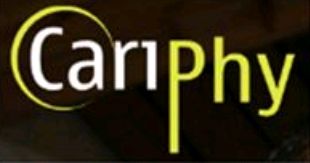IPPZ is a company that develops software for health care professionals. This software enables health care providers and patients to communicate more easily with one another. Users include health centres, hospitals, psychologists, therapists, general practitioners and physiotherapists. IPPZ offers this software under the name of its subsidiary 'Karify' and owns several EUTMs including the word mark 'KARIFY'.

IPPZ uses this mark (inter alia) in the following way:

The Defendant, Cariphy, develops and markets software for health care and health club professionals and sells this software under the trade mark 'CARIPHY'. This software enables physiotherapists, health club owners and personal trainers to instruct and assist their patients/clients and to manage agendas and training schedules. Cariphy is the owner of the EUTM word mark 'CARIPHY' (EUTM) and uses this mark (inter alia) in the following way:

In proceedings before the The Hague District Court, Karify claimed that the use of 'CARIPHY' as a trade mark for software infringed IPPZ's trade mark rights and trade name rights. Cariphy, on the other hand, claimed there is no likelihood of confusion because the trade marks of Cariphy are used for a different product and this product is not aimed at the same public, namely consumers and professionals outside the health care industry, instead of consumers and professionals in the health care industry.
The court considered that both marks are very similar in a conceptual and aural way. The elements 'Kar' and 'Car' both refer to the word 'Healthcare'. The argument put forward by Cariphy that the relevant public is not likely to distinguish such element was dismissed by the court. The fact that both marks are visually less similar was not enough to overcome the other similarities of the marks. Furthermore, both marks cover software and both products are very similar. Both software solutions are aimed at the same users (physiotherapists) and have the same function (to help health-care professionals improve individual supervision of their clients/patients).
The court therefore concluded that the use of the brand CARIPHY causes a likelihood of confusion and Cariphy therefore infringed the trade marks of Karify under article 9 (2) (b) of the European Trade Mark Regulation.
It is noteworthy that the court applied an international approach when assessing the aural similarities. The court considered that both marks are to be pronounced in the English way (like the word 'terrify', only starting with sound of the letter 'k'). Holders of EUTM word marks containing English words or references to English words should therefore take into account that the Dutch (Benelux) public perfectly understands English and that the English language can be used as a basis to assess a possible EUTM infringement in the Netherlands.
Lucas de Groot
The content of this article is intended to provide a general guide to the subject matter. Specialist advice should be sought about your specific circumstances.

